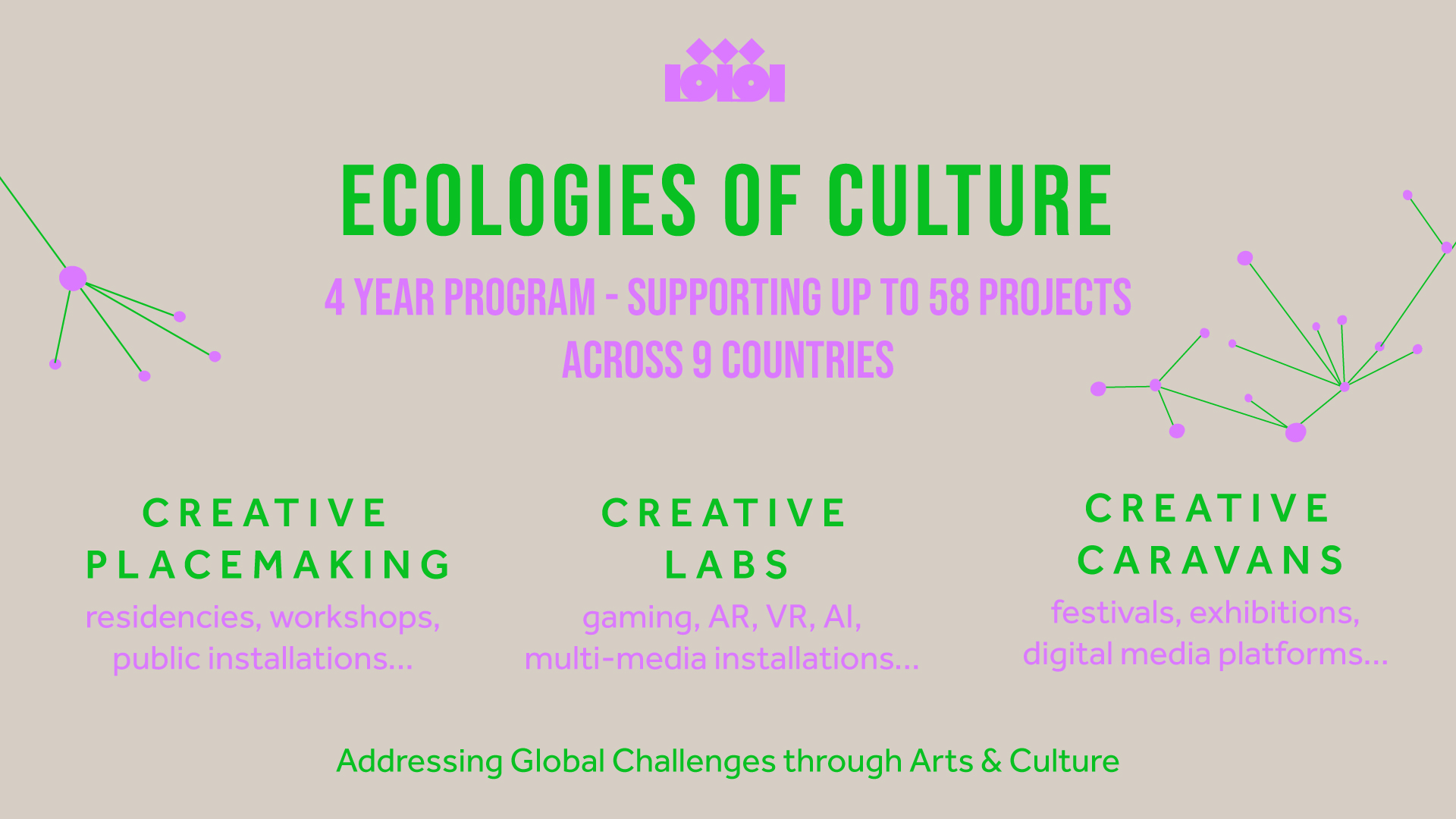
Echos Electrik is delighted to be a partner in the Ecologies of Culture project, a new four-year program co-funded by the European Union and run by the Arab Fund for Arts and Culture (AFAC), in partnership with Oxfam and Megaphone.
Today, the challenges we face – both in our region and on a global scale – appear more interdependent than ever. This observation is accompanied by a widely shared idea: solving these problems requires the pooling of expertise from the social sciences, the exact sciences and many other fields. Water scarcity, for example, is as much a scientific challenge as a social and governance issue. And yet, even from this perspective, artists and cultural players are still too often not involved in the process of collective reflection and creation.
How can the imagination and cultural practices contribute to understanding and transforming these interrelated realities? And what might it look like to integrate artists into the constellation of thinkers and doers striving to tackle the world’s most pressing challenges? By putting creativity at the heart of cultural practices, could we gain a new perspective on our problems and the paths leading to their resolution? « The Ecologies of Culture » invites candidates from the cultural and artistic sector, or from other disciplines, to consider this question.
The program aims to find ways of addressing the multiple challenges we face – from gender inequality and climate change to digital transformation, among others – by approaching them not as isolated issues, but as an « ecology » of interconnected dynamics that shape and influence the worlds we live in.
In thinking about the program, we tried to imagine what the region’s cultures – transnational, national and local – would look like as a vast reef stretching as far as the eye could see. We know that the reef is there « underneath », but until we’ve dived into a specific place, it’s impossible to grasp what’s going on in the different, ever-changing worlds beneath the surface. How can a current breathe life? How can pollution from a new hotel harm the seaside town where it’s located? What about rapidly warming waters? And if a group of plankton responsible for the formation of coral reefs migrate to colder waters, do they retain the memory of warmth?
Ecology encompasses multiple networks of relationships: with place, memory, technology, land, language and community. Shaped by the currents that flow through it and those that threaten it, ecology weaves a vast network of activities, both fragile and capable of regeneration. How, then, can we fully grasp it if not by observing it closely, at the very heart of its local realities?
At the heart of the « Ecologies of Culture » program lies a series of questions: how can culture help us to better perceive what is at play in our worlds, in these still unknown reefs? Can it help us create new worlds? Can it become a meeting place for scientists, journalists, anthropologists, artists and agronomists, to reflect together on these new connections? Can culture be rethought as an ecology? And, above all, how can the worlds we shape, the works we produce, remain in motion – between places, languages and people – even when the roads that connect us are blocked or narrowing?
Today, we invite you to dive into this metaphor, to imagine, share, promote and support with us the different forces, actors and interactions that form the corals of the cultural reef that is our region.
Ecologies of culture will support up to 58 projects from 9 Arab countries, in Algeria, Egypt, Jordan, Lebanon, Libya, Morocco, Palestine, Syria and Tunisia, through three pillars:
Creative Placemaking. Supports locally-rooted cultural and artistic projects that focus on communities and shared spaces.
Creative Labs. Aims to encourage experimentation between different sectors, including the arts, sciences, education and technology.
Creative Caravans. Aims to extend the reach of cultural content through the circulation of works, touring and media dissemination.
We look forward to receiving your applications.
![]()